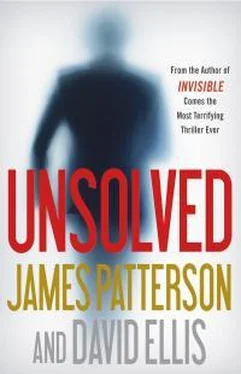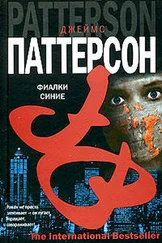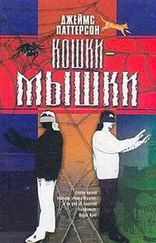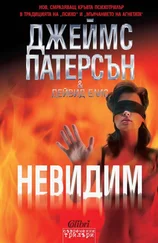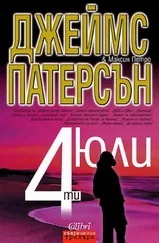Let me take you away from this, Em, he thinks. Let’s forget about all of this. Everything. You’ll get better. I know you will. I’ll help you. Let me do that. Take my hand, and let’s start running.
No more lies. No more of you pretending to be strong enough to handle all of this alone. No more hiding all the pain.
Let me back into your life.
24
I OPEN my eyes, turn my head, and feel a pain shoot down my neck. I’m always stiff when I get a lot of sleep.
I blink, try to focus. The smell of coffee, Books’s favorite Italian blend. We both savor these slow weekend days, but something immediately feels different about this particular morning.
Books stands in the corner, a coffee mug in his hand, looking out the window at the rainfall. On the bed next to me is the Sunday Washington Post, folded, slightly damp from the rain. I see the headline “Citizen David Targeting NYC?” above Shaindy Eckstein’s byline.
Well, that didn’t take long.
I stir and moan, enough for Books to hear me, but he is lost in thought, still as a statue, looking out the window. He is always up first on the weekends, and he always crawls into bed with me when I wake up.
Not this time.
“Morning,” I say.
“Morning,” he answers. No movement.
Is he worried about the bookstore? It isn’t easy, in these days of digital sales, to run a bookstore, but he has had some success focusing on books that people like to hold in their hands—kids’ books, self-help books, some nonfiction—and doing endless promotions with local authors and reading groups to generate interest.
I grab my phone and check my e-mail. It is flooded with Google alerts and breaking-news items about various deaths around the country based on my search terms, data that will take me days to pore through and plug into my algorithms. But one particular article steals my breath away.
It is from a New Orleans paper, the Times-Picayune . “FBI Links Local Death to Serial-Killer Spree.” It’s by that reporter who accosted me by phone. I thought we had a deal, that she would hold the story. Apparently not.
My head drops back on my pillow. I am so screwed. Dwight Ross will have my head for this. And Books…oh, Books.
Books raises the mug to his mouth, takes a sip, lowers it.
“News out of New Orleans this morning,” he says. “Don’t know if you had a chance to see it yet.”
I do a slow burn. He saw it. He’s probably read more than a dozen stories online already. He always reads articles involving the Bureau. He may have left the job, but he hasn’t lost his interest in all things FBI.
“I was going to tell you,” I say.
“Meeting up with college friends, you said. A mini-reunion, you said.”
“Books—”
“You left out the part about investigating a slip-and-fall in a shower as part of a serial killer’s crime spree.”
“Will you please turn around and at least face me?” I say. I get out of bed, feel a stabbing pain in my right ankle; I put too much pressure on it too quickly.
He turns to me, red-faced, his eyes blazing. But it’s not anger I see. Anger, I could handle. Anger, I deserve.
The arched eyebrows, the straight line of his mouth. If I had to name it, I’d call it fear .
“I was going to tell you this weekend,” I say. “Today.”
He tries to give me an ironic smile, but he can’t manage even that. “We’ve been together since Friday night. Why the delay?”
I cut the distance between us in half but I don’t get too close. I’m still hobbling a bit. “Because I knew it would start a fight.”
He nods. “That’s quite a standard for honesty you have there. Only tell me things I want to hear.”
I drop my head. What can I say? He’s right.
He sets his coffee mug on the windowsill. His forehead wrinkles and his shoulders rise. “How—how many times do you have to learn your lesson, Emmy? It wasn’t, what, two months after the attack, you could hardly move from your bed, you still had tubes sticking out of you, for God’s sake, and you were killing yourself trying to solve that rash of deaths of homeless people in Los Angeles. Remember that? I do. I sure do. The doctors had to confiscate your computer.”
“I know, I—”
“Oh, and then,” he says, circling the room, “ then you were convinced a bunch of senior citizens in Scottsdale who’d died of natural causes were being murdered. You were barely out of the hospital, your health was precarious at best, and you took pills to stay up at night. Remember how that turned out?”
The bad combination of meds that the papers described as an overdose. How could I forget?
“I stand by that work,” I say. “Los Angeles? Scottsdale? Those weren’t deaths due to natural causes. Those were murders.”
“Right, because old people never die naturally,” he says. “And homeless people are always so healthy. Of course. They all must have been murdered!” He throws up his hands.
“They were murdered,” I say. “I just never got the chance to prove it. You may think I’m crazy for doing this work, but I’ve never heard you say I was wrong .”
“It doesn’t matter if you’re right or wrong.” He shakes his head. “You swore to me,” he says, pounding the nightstand with his fist. “You swore to me it was over.”
I walk to him and put a hand on his chest. He recoils. I realize he’s shaking.
I ask, “If you knew somebody was out there killing people, and the police didn’t even know he was doing it, would you do something about it? Or would you do nothing?”
He steps back from me. He opens his mouth as if searching for words. I think it’s a legitimate question—the only question. And he seems to think, judging from his reaction, that I am missing the point entirely. That we are missing each other entirely.
My phone buzzes, a call. Instinctively, I look at my phone. Then back at Books, who is slowly shaking his head.
“Go on, check it,” he says, pushing past me. “I’ll be downstairs.”
25
THE MAN who calls himself Charlie has time on his hands. He rolls his wheelchair along the red-brick sidewalks of Old Town, enjoying the mild morning air, whiling away the hours until Emmy drives her Jeep from Harrison Bookman’s house back to her own. The GPS tracker in his pocket has shown no movement in Emmy’s car since it was parked by Bookman’s house Friday night, when he planted the device under the fender. He drove by the house once on Saturday just to be sure.
True, he had hoped that, at most, she would spend Friday night at his house and then return home the following morning. He hadn’t expected her to spend the entire weekend at his house. But it’s not a total loss. Alexandria is quite beautiful, especially Old Town—the scenic waterfront of the Potomac, the historic architecture. The George Washington Masonic National Memorial is his personal favorite.
He hums to himself as he rolls along the empty sidewalk, empty because it is not yet seven in the morning, enjoying the early sparks of dawn as the world stretches and yawns. Down the way, a few places are coming to life—a pastry shop emits delicious aromas of baked goods and fresh coffee, and a waiter is setting up outdoor tables in preparation for brunchers. But Charlie, on the sidewalk near a real estate agent’s office, its window filled with photos of gorgeous and charming and adorable properties for sale, is completely alone.
The sidewalk ends in a slope down to pavement, something that most people wouldn’t think about. But if you’re in a wheelchair, you notice a change in the surface. You are constantly on the alert for anything that might bar your way or force you to rethink your route.
Читать дальше
